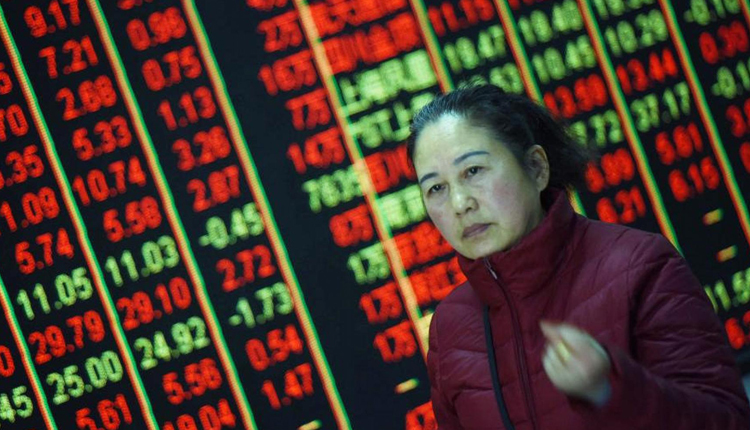Asian markets saw broad declines on Friday, amid expectations the U.S. Federal Reserve could be less aggressive than expected with monetary policy when it meets next week.
Mainland Chinese shares recovered from an earlier dip to end the trading day higher, as the Shanghai composite rose 0.24% to 2,944.54 and the Shenzhen component advanced fractionally to 9,349.00. The Shenzhen composite also gained slightly to 1,573.45.
Hong Kong’s Hang Seng index fell 0.69%, as of its final hour of trading, after the city reported Thursday that it saw its biggest annual drop in exports in almost three and a half years in June.
The Nikkei 225 in Japan slipped 0.45% to close at 21,658.15, as shares of index heavyweight Softbank Group gained 1.09% after the conglomerate launched Vision Fund 2, the sequel to its landmark investment fund. The Topix index declined 0.4% to end its trading day at 1,571.52.
Shares of automaker Nissan Motor dropped 3.21%, after the company announced Thursday it would slash 12,500 jobs worldwide following a 95.5% drop in its first-quarter operating profit.
In South Korea, the Kospi declined 0.4% to finish its trading day at 2,066.26. Australia’s S&P/ASX 200 also shed 0.36% to close at 6,793.40 as most sectors fell.
Meanwhile, Tokyo could rule to remove Seoul from a so-called white list with minimum trade restrictions as soon as August 2, Reuters reported Friday, citing Japan’s Kyodo news agency.
Overall, the MSCI Asia ex-Japan index slipped 0.59%.
Concerns are rising that the Fed may be less aggressive than expected on monetary policy when it meets next week. That came after European Central Bank (ECB) President Mario Draghi said the risk of a recession in the region was low despite earlier signalling a rate cut and more monetary easing ahead.
Some traders took this to mean the central bank would not be as aggressive in its easing measures and that the Fed could follow suit when it meets next week.
“The ECB disappointed markets looking for a ‘whatever its takes’ moment; as the shortfall on conviction, commitment and details overtook the dovish stance and easing bias,” Vishnu Varathan, head of economics and strategy at Mizuho Bank, wrote in a note.
“The ECB’s fizzle, rather than sizzle, raises questions about (Federal Open Market Committee) expectations for next week; and markets may have a weekend of soul-searching ahead,” he added.
William Adams, senior economist at PNC, however, told CNBC’s “Squawk Box” on Friday that he’s looking at a 25 basis points cut in July and another one in October. “We see these as insurance cuts to prolong … the expansion, not because we’re headed to a recession in the near term in the United States.”
The U.S. dollar index, which tracks the greenback against a basket of its peers, was at 97.816 after falling below 97.6 yesterday.
The Japanese yen, widely viewed as a safe-haven currency, traded at 108.61 against the dollar after weakening sharply from levels below 108.4 in the previous session. The Australian dollar was at $0.6939 after slipping from levels above $0.696 yesterday.
Oil prices were up in the afternoon of Asian trading hours, with international benchmark Brent crude futures 0.22% higher at $63.53 per barrel, while U.S. crude futures added 0.52% at $56.31 per barrel.
Source: CNBC


